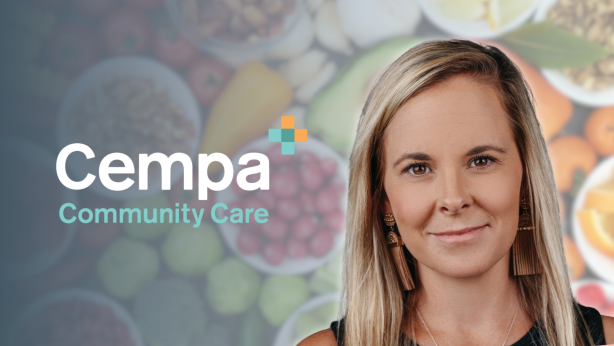Cemple Expressions Continues to Expand Mental Health Awareness During Minority Mental Health Month
Established in 2008 to recognize “the unique struggles that underrepresented groups face in regard to mental illness in the US,” Minority Mental Health Month is formally celebrated in July each year — but at Cempa, it’s something we focus on all year round.
“Mental health is wealth,” says LaDarius Price, Community Outreach Manager at Cempa. “It’s a complete way of life that should be a priority and a lifestyle.”
As stigmas surrounding mental health still exist nationwide, underserved groups often experience these negative perceptions twofold: Not only are they met with the same negative impressions of what addressing one’s mental health really means, but they’re also navigating the impact of longstanding racial injustices that still exist today.
Unfortunately, statistics gathered by leading mental health organizations consistently underscore the serious need for a heightened focus on minority mental health:
- According to the US Department of Health and Human Services Office of Minority Health, “suicide was the second leading cause of death for blacks or African Americans, ages 15 to 24” in 2019.
- Mental Health America reports that Latinx youth are more likely to experience “mental distress relating to immigration and acculturation.”
- Studies have shown that prominent faith-based foundations in both Black and Latinx communities may lead to reluctance in seeking therapy or other mental health services.
“At Cempa, we use data points like these to inform our efforts, but we also tap into what our minority communities need by talking to them,” Price says. “We’re meeting these people where they are. We’re in their schools, we’re in their neighborhoods. We’re really asking what they need.”
So, how do we put our knowledge into action?
Last year during Minority Mental Health Month, we shared details about a program born out of the COVID-19 pandemic called Cemple Expressions, developed for minority youth in the Chattanooga area.
“During the pandemic, I saw so many teenagers and young people having issues related to depression and suicide,” Price explained when we discussed the program last year. “All of those numbers went up across the board. We wanted to put a program together to serve this demographic, one that spoke directly to the needs of this community.”
Bringing Cemple Expressions to life in the pandemic setting presented its own unique challenges. In a lot of ways, it meant simply helping kids understand that it’s okay to not be okay. It also meant helping them understand that they have avenues to sort through anxiety, depression, and other mental health challenges. Isolation was one of the most significant contributors to the mental health issues that inspired Cemple Expressions. But despite a shift back to normal, in-person settings, we’ve realized that our program participants still need the curriculum and safe space provided by Cemple Expressions long-term.
“We still have a very long way to go as it relates to mental health education in Chattanooga’s minority communities,” Price says. “Much like HIV, mental health is stigmatized and people are uncomfortable talking about it. Without a program like Cemple Expressions, a lot of teens would never know what mental health is. We’ve made a life-changing investment at a number of schools, and our youth are better as a result of this work.”
According to Price, students’ interest level is a great indicator of the value of Cemple Expressions programming. As students begin to engage, they demonstrate a genuine interest in learning about themselves, what triggers their behavior, and how to process their traumatic experiences.
“We have to stop teaching our community to internalize their traumatic experiences and challenges and process them in a healthy manner,” Price says. “We could go a lot further as a community if we took mental health seriously. Cemple Expressions is one way that Cempa is helping a new generation learn mental health and wellness strategies that will serve them for many years to come.”



